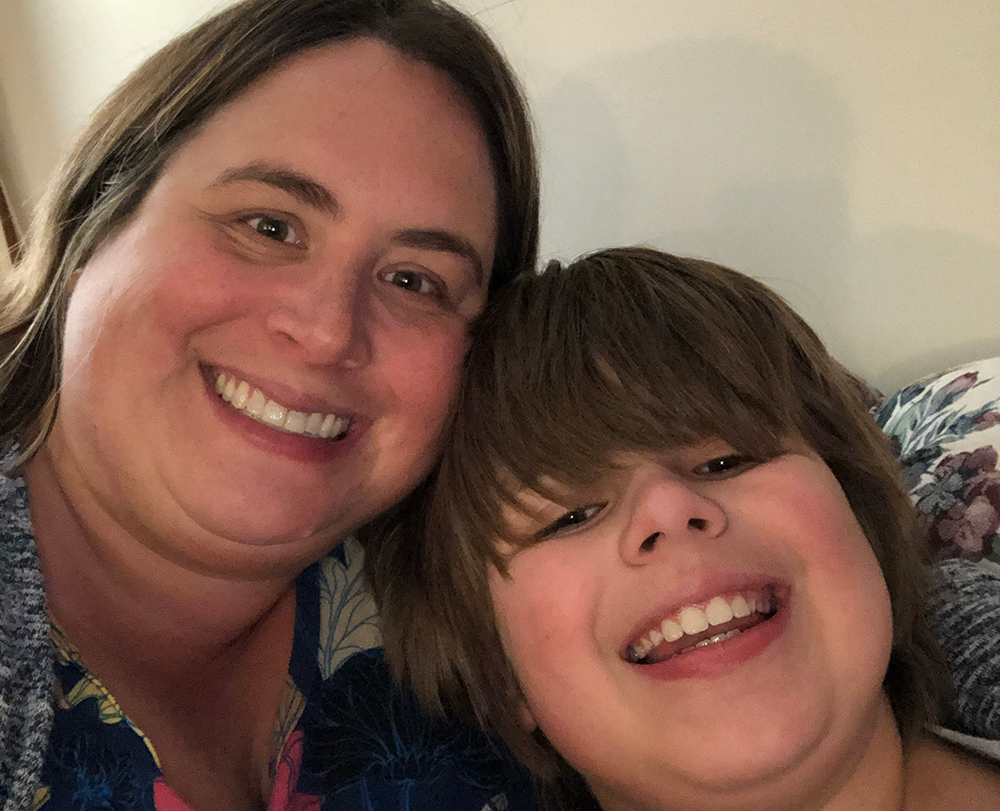This post is a personal perspective from OAC member Liz Paul of Mankato, MN, in recognition of National Childhood Obesity Awareness Month (September).

“I’m concerned about this recent pattern of weight gain. You should be doing more about it,” says the doctor.
“I know,” I say, feet looking at the floor. “I know.”
This feeling of weight shaming at the hands of a physician isn’t a new experience for me. As someone who has struggled with obesity all my life, since my own childhood, I know well what it means to be belittled for my size by someone who has promised to “do no harm.”
But what’s new this time is the shame for me as a parent, and the weight gain in question is in regards to my 11-year-old son.
It’s been a rough couple of years for him. We moved to a new town, and he had to say goodbye to good friends and find some new ones. He dealt with a bully, suffered from depression and anxiety, and then COVID-19 hit.
And through all that, he’s gained weight.
Living with Obesity at Any Age
Living with obesity is hard when you’re an adult. Anyone with eyes and ears can see the false advertising that bombards our lives: that thin people are popular, beautiful, and successful and “fat” people are ugly, lazy, and worthy of ridicule. All of this is even more challenging when combined with the fact that we are living in a world not designed to accommodate people of larger sizes, and we are constantly reminded that, in our excess, we are “less than” other people.
Living with obesity is even harder because, despite this shame and bias from society, there is a real danger to our health if we continue to live with untreated obesity. The relationships of obesity to diabetes, hypertension, kidney disease, heart disease, and other conditions are not trivial things. These risks, however, are often used as the excuse for real cruelty from physicians and family members – from people who should know better. Imagine treating someone with cancer as worthy of shame or ridicule rather than rallying around them and their treatment?
Living with obesity as an adult is hard. Living with it as a child can be so much harder. For as cruel as adults are, kids are twice as cruel. And, I am coming to learn, so are many pediatricians. That shame apparently extends to parents too.
Raising My Children and Emphasizing Wellness, Not a Number on a Scale
As a mom, I don’t believe in raising my children to be ashamed of who they are. I don’t care if they grow up to be 100 lbs. or 400 lbs. I will love them with every ounce of my being. They are loved, and they are worthy, just as they are, in every moment of their life. Obesity is a disease that has a genetic component. I know I have likely passed it to my children, but I choose not to pass on my internalized shame.
It was in realizing this for my children that I finally found the freedom to embrace my own worth, regardless of my size. I no longer disparage my body in front of my children.
In our house, we talk about:
- Fueling our bodies, but also food as part of traditions, celebrations, and enjoyment
- Moving our bodies and the joy that exercise can bring to our physical and mental health
- Trying new fruits and vegetables and having healthy snack options on hand
- Enjoying all things in moderation
The night after the doctor’s appointment, when my son asked me to help him lose weight, we talked about ways that we can make small lifestyle changes to make lifelong habits that will help him. We talked about how food can be addictive, how to meal plan, how to exercise more, eat smaller portions, and make healthier choices. But most importantly, we talked about how he is loved and accepted no matter what a number on a scale says.
More on Childhood Obesity
If you are interested in resources about childhood obesity, including childhood obesity stigma and family health tips, Click Here for more information from the Obesity Action Coalition (OAC).
